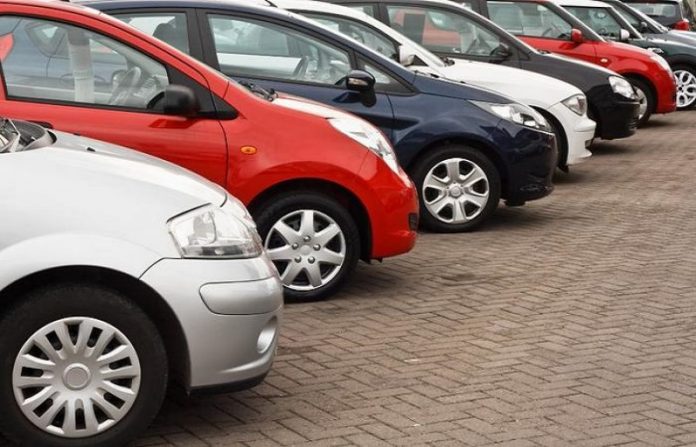The plight of a cash economy is exhibited in numerous forms. Most importantly, it gives rise to a parallel economic system wherein big cash holders rule the roost by turning common commodities into the most valuable articles that people have to buy even at exorbitant prices.
The same is happening with automobiles today, which, despite being produced in sufficient quantities by some leading auto manufacturers in the country, are put on hold by their dealers to take advantage of a much-delayed delivery for some obvious reasons.
The unethical practice, referred to as ‘Own Money,’ has become quite a common trend in the automobile market, which is ruled by unauthorised dealers and rapacious speculators, making most of the time between order placement and vehicle delivery.
As things stand, after order placement, customers have to wait for some months for delivery. However, to expedite the delivery cycle they can pay ‘own money,’ a premium or a kind of an ad-hoc fee that is paid by customers to make sure spot delivery of their vehicle. The crooked practice has been in full swing despite several attempts for elimination of the menace.
As a general rule, the ‘own money’ ranges from 250,000 to 300,000 rupees, but in some cases, the premium can even be more than the above. Most of the people blame automobile manufacturers for this practice; but against the general perception, the fault lies with unauthorised dealers, who, in association with opportunistic investors, take advantage of the extended delivery period. In contrast, those customers who book their vehicles at official dealers are never asked to pay additional money and they get their cars delivered as per the scheduled period of time.
In most of the cases, the root cause of the problem lies in the prevailing cash economy, which creates an ideal environment for the speculators’ lot to buy up new automobiles only to turn the same commodities into a kind of speculative enterprise that can be sold against hefty premiums that dealers charge in collusion with investors.
To root out the menace, the government has taken numerous initiatives. For instance, it earlier introduced a tax on the transfer of vehicle registration, made it mandatory for buyers to submit copies of their ID cards merely for the recording purpose and it also levied an additional withholding tax on non-tax filers.
Despite these seemingly effective measures, the practice has now become a usual norm in the market. Speculators buy up a large number of new vehicles through benami accounts and sell them against ‘own money,’ particularly to those customers who cannot wait so long for delivery.
The practice can be best eliminated if automobile manufacturers and assemblers make delivery of the order on time. However, considering the current state of the production in the country’s automobile sector, the industry has been operating to its full capacity to cater to the increasing demand, but this is mostly a deregulated market, as well as a loose check on deceitful traders that helps the trend to persist.
In addition to that, there is a dire need to increase customer’s awareness. As seen on most of the occasions, customers show a needless urgency to get their cars delivered well before its usual delivery time, without realising the fact that it takes a sufficient time to produce a car according to the customer’s requirements and preferences.
Most of the customers are ready to pay high premiums for instant car deliveries, which consequently encourage self-seeking investors to falsely create a longer delivery time in the market. In particular, buying an automobile through investors does not help customers link with car manufacturers, thus incapable of building a direct relationship with their customers.
Therefore, customers can play a leading role to curb the practice, as the simple act of saying no to ‘own money’ can do wonders for the entire auto sector. They should book their cars at officially authorised dealers only and can also place their order online through the official websites of auto manufacturers.
The government needs to tighten its rules against wheelers and dealers, operating behind the scenes. For instance, when a private motor vehicle is purchased for the first time and is sold to another party prior to its registration, the government must collect an additional advance income tax worth Rs 100,000 at the time of registration. Also, in case of individual customers, pay order issued in favour of a corporate beneficiary must be made from the individual customer’s bank account.
In a word, the ‘own money’ menace tends to be a deep-seated curse which can only be eliminated through a joint collaboration of the government, industry and customers.
























